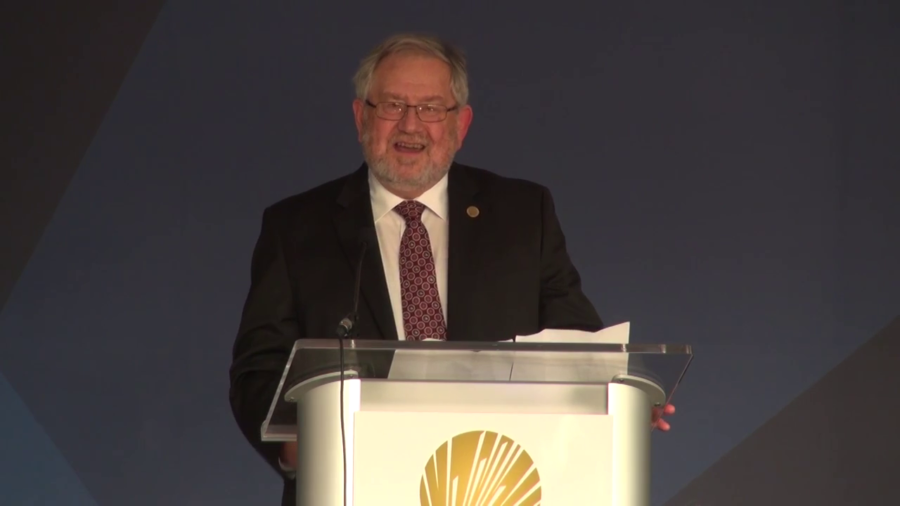Ed Krol: When I first learned about being named for this award, I listened to the acceptance speeches of prior awardees and I noticed the central theme was “I just happened to be in the right place at the right time.” And in fact I just happened to be in the right place at the right time.
But probably more than that, the important thing was we picked the right technology, IP. We were a group of experienced software people at the National Center for Supercomputing Applications at the University of Illinois. And we were charged with learning networking and connecting that supercomputer to the rest of the world. We picked IP because it was open, it worked, and had a participatory development path.
We didn’t know at that time that Dennis Jennings was looking for a group who was too naïve to know it was hard to built a nationwide 56-kilobit network to connect the supercomputer centers together and then go on to tie them to the emerging research networks. He picked us to head the effort, and thanks to a lot of help from the centers, the regional networking staffs, and the networking research community, we built a network which survived for eighteen months before its replacement T1 network came into to production.
Part of the original NSFNET grant was to facilitate the fledgling community in connecting to and using the Internet. There is an obvious catch-22 here as the only way to get documentation about the Internet was…to download it from the ARPANET Network Information Center. And so if you could get connected you could get the documentation about how to get connected.
Therefore I wrote the Hitchhiker’s Guide to the Internet. It was a thirty-page guide documenting probably everything I knew about the Internet at the time and released it to the community. And it by the way was then promptly named RFC 1118 and put up on the NIC with all the rest of the documentation.
This led me down the path to being solicited to write a book for O’Reilly which included not only how to use the Internet but catalog a thousand sites where information could be found. The book hit the shelves about the same time as the Internet was discovered by the public, so suddenly I spent a year teaching whomever wanted to know “what is the Internet.”
Anyway I’d like to thank the Internet Society and the community for this honor. And I’d like to acknowledge the help of U of I coworkers Charlie Klein and Ross Veitch who did a lot of the real work and allowed me to do the fun stuff and be standing here today. And I have to add that Charlie Klein… Getting back to Yvonne’s talk about CU-SeeMe, Charlie Klein, to show it’s a small community, wrote the audio portion of CU-SeeMe. So he was actually part of your Yvonne’s successes in this area as well. Thank you very much.
